The Rise of Mayer Mizrachi: The "Chacalde" Of Panama City
Let’s face it: people are waking up. They’re fed up with the same recycled political nonsense from career bureaucrats who promise the world and...

7 min read
Let’s face it: people are waking up. They’re fed up with the same recycled political nonsense from career bureaucrats who promise the world and deliver nothing. That’s why outsider, anti-establishment candidates are gaining traction. They’re not polished puppets of the system; they’re wrecking balls to the status quo. And that’s exactly what more freedom-minded individuals are craving: someone willing to call out the corruption, cut through the lies, and actually challenge the rotten political machine from the outside.
Panama had its moment of resistance against the establishment when it elected Mayer Mizrachi as the mayor of Panama City in July 2024. Mizrachi, a 36-year-old tech-savvy businessman, garnered huge public support, securing one-third of the votes. He didn't play by the rules of old party politics and refused to appear in mainstream media. His social media-centred, street-smart campaign helped build his political image as that of an ordinary citizen ready to take on the political elites.
He even called himself "Chacalde," a combination of Chacal (jackal) and Alcalde (mayor). His brand has attracted both the youth and the working class, thanks to his commitment to transforming Panama City into one of the world's leading cities.
Being the mayor of Panama City brings national-scale political power. A Mizrachi-type politician who doesn't owe his position to political elites can truly have transformative power in Panama. He has already begun to influence national politics with his projects, such as introducing Bitcoin into public services. However, this is just the beginning, and I am expecting much more from him. Let's take a closer look at Mayor Mizrachi's life and career to gain a better understanding of him.
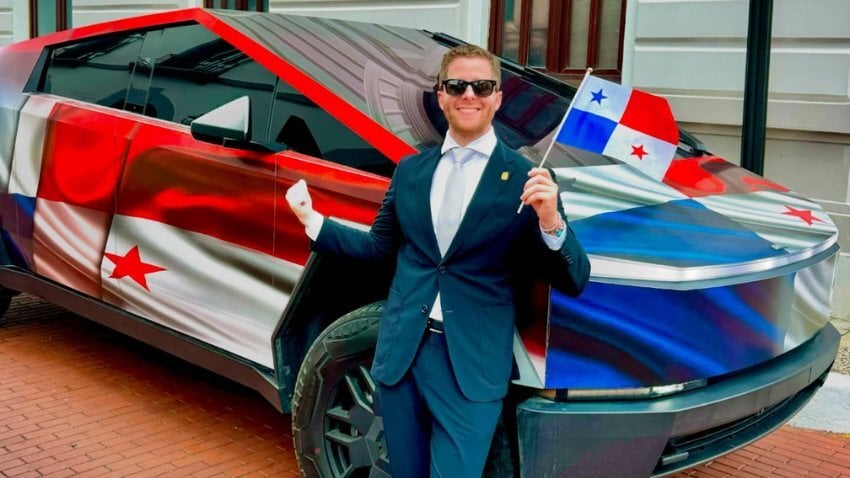
Before politics, Mizrachi made waves as a tech entrepreneur launching encrypted apps, importing Teslas, and challenging Panama’s outdated systems with bold innovation
Mizrachi didn't have a political career before being elected Mayor of Panama City. He had been a controversial entrepreneur, emphasizing cryptocurrency and technology that solves major problems.
His first big move was Criptext, an encrypted messaging app focused on privacy, which was ahead of its time in 2013. He developed a personal brand revolving around the idea of privacy and personal sovereignty. However, his $200,000 USD contract with the government caused him serious problems due to accusations of fraud.
Then came Geeky Motors, which imported Teslas into Panama and challenged the country's outdated car industry. Mizrachi played an important role in the transformation of the automotive industry in Panama. He also has many other tech company initiatives, building a reputation as a creative disruptor.
Related content: 8 Best Cities For Expats In Panama
Mizrachi's political rise didn't come without baggage, but he's never tried to hide it. On the contrary, he has used his past to build his political brand as the Chacalde.
His contract with the government regarding the use of Criptext for government officials became the subject of a fraud investigation after a change in administration. The new government claimed he failed to deliver an encrypted email system. Mizrachi argued that politics and bureaucracy had hindered the project.
He was later arrested in Colombia during a visit and incarcerated in La Picota, a notorious prison in Bogotá. For nearly a year, he fought his case from behind bars while the media in Panama turned it into a sensation. Some called him corrupt. Others saw him as a victim of a broken system. In 2016, he was released, and the case quietly faded.
By the time he launched his campaign, the legal troubles had faded, and what once hurt him now helped define his appeal.
Most entrepreneurs would have seen their careers collapse under such accusations, regardless of their validity. But instead of retreating, Mizrachi leaned in. Rather than avoiding the accusations, he reframed them as evidence of systemic failure. He spoke openly about his experience to expose the flaws in Panama’s political system. His ordeal became a turning point—first fueling his activism, and eventually, launching his political career.
He wasn’t a polished politician. He was someone who had been burned by the system and came back stronger. That made him real in the eyes of individuals. It was this authenticity that helped him win the mayoralty of Panama City.
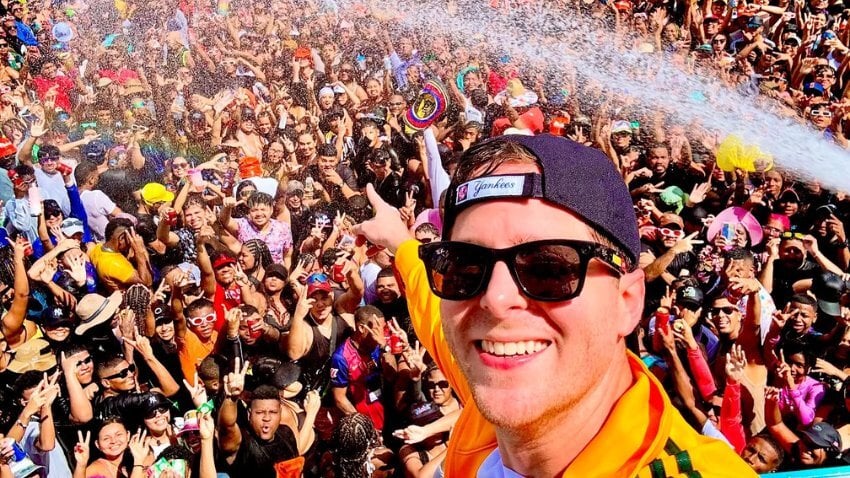
Mizrachi won without billboards or big donorsjust memes, social media, and direct trust with the people. A grassroots campaign that rewrote Panama’s political playbook
In 2023, Mayer Mizrachi announced his candidacy for mayor without the backing of a political party, the media, or a big donor. Later, he joined the Partido Popular, a small centre-right party. He insisted on running the campaign his way, without using billboards, rallies, or traditional media presentations. Mizrachi ran his campaign on social media, including memes and viral videos, and reached voters who had never been interested in politics before.
His campaign was built on the trust he created with the people, and his image was the main product. “The Chacalde” walked the streets, spoke directly to people, and replied to messages himself. His well-connected rivals didn’t stand a chance, and he proved that Panamanian politics isn't just a game for insiders.
Related content: How Safe Is Panama For Expats?
As expected, Mizrachi doesn't act like a typical mayor. He doesn't wear suits; most of the time, he skips ceremonial activities and writes X threads rather than making long speeches.
From his first day in office, he went straight to work, fixing potholes, modernizing city systems, and demanding results. He maintains his accessible style of leadership by engaging with the people and public figures casually and informally. He doesn't hesitate to address political issues and propose solutions on social media.
One of his primary objectives is to streamline bureaucracy. He can’t stand red tape and is aware that most government systems are intentionally slow. That's why he's pushing to digitize everything, simplify services, and use real-time data to make city management more transparent.
Mizrachi's discourse centres on freedom, innovation, and personal responsibility. He thinks the government should get out of the way and let people thrive. However, he refuses to play partisan politics. That’s why his motto is "without distinction of political flags." Because Mizrachi is focused on results regardless of political affiliation, he has many supporters across the political spectrum.
Related content: The Practical Implications Of Panama Joining Mercosur
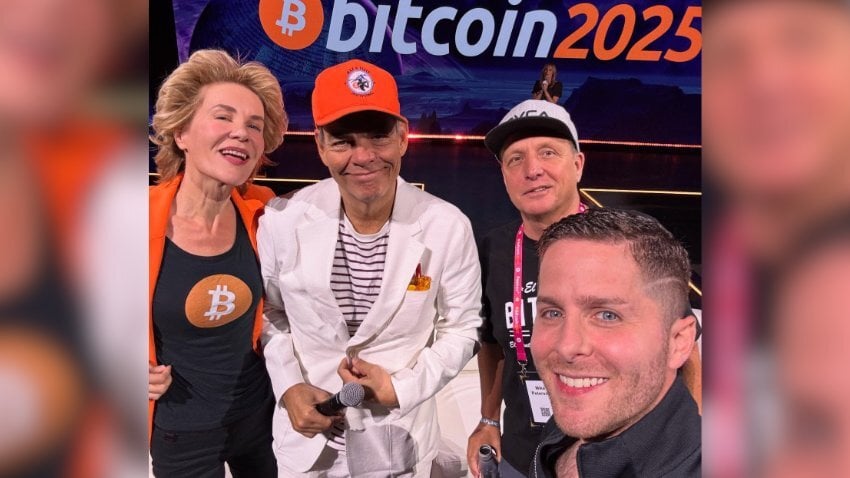
Panama City embraces crypto: Mayor Mizrachi brings real-world Bitcoin use to life, taxes, fines, and even bus tickets. A bold, practical shift for business-friendly innovation
Mayor Mayer Mizrachi isn't a typical politician. Before entering public office, he established a reputation as a tech entrepreneur and an advocate for Bitcoin. He wasn't tamed by bureaucracy or any international organization; instead, he built his career by founding businesses. Now, he's applying that same energy and mindset to governing Panama City.
President Bukele's Bitcoin integration in El Salvador inspires Mizrachi, but there are considerable nuances. Although El Salvador's adoption of Bitcoin as legal tender was sensational, it didn't create the impact Bukele had expected. Making Bitcoin legal tender wasn't sufficient for El Salvador to attract a high volume of foreign investment. Recently, the International Monetary Fund (IMF) compelled El Salvador to adopt Bitcoin as a voluntary payment method and has prohibited its use for tax payments.
Mizrachi seems to have learned the lesson. He did not force the Senate to pass a Bitcoin bill so as not to start an endless debate on the nature and consequences of Bitcoin. Instead, he has taken a practical approach to adopting Bitcoin while leaving all the theoretical debate behind. In April, he announced that residents would soon be able to pay municipal taxes, fees, fines, and even bus tickets using Bitcoin and other cryptocurrencies (Ether, USDC, and USDT). Mizrachi's plan is simply to create a mechanism that converts cryptocurrency into dollars through a bank.
It's not about making noise but making things work. By integrating cryptocurrency into the city's day-to-day financial life in a practical way, Mizrachi is sending a clear message to the world that Panama City is open for pioneering business.
The idea of paying taxes or public fees with Bitcoin is already quite innovative. But Panama’s latest move goes far beyond that. The country is home to the Panama Canal, a critical artery for global trade.
At the Bitcoin Conference in Las Vegas, Mayor Mizrachi made headlines with a game-changing proposal during his keynote speech. His plan? Grant priority passage through the Panama Canal to ships that pay their fees in Bitcoin.
The Panama Canal is one of the most strategic pieces of infrastructure on Earth, handling about 5% of all global maritime trade and generating over $5 billion USD in annual revenue. Giving priority to Bitcoin-paying vessels would be unprecedented. It would inject Bitcoin directly into the engine room of global commerce. If implemented, this initiative would mark one of the most significant integrations of cryptocurrency into real-world economic infrastructure to date.
This proposal puts Bitcoin at the centre of international finance, not through philosophical arguments, but by tying it to actual trade incentives. Panama is showing the world how to embrace innovation without endless debate by implementing practical, results-driven solutions.
It’s a direct response to critics who claim Bitcoin is impractical or incompatible with current financial systems. Those critics will be left exposed, defending a broken legacy system that serves entrenched interests and resists meaningful change.
Even if only a small fraction of Canal revenue begins to flow in Bitcoin, it would be a major symbolic and practical milestone. It would signal a paradigm shift in how nations think about currency, sovereignty, and international trade. This is what a freedom-first financial strategy looks like. And Panama City is leading the charge.

Panama City is shifting fast, with young, bold leadership, digital reforms, and expat-friendly momentum. Mizrachi’s vision is freedom, innovation, and real change
Mayor Mizrachi's plans extend beyond just accepting Bitcoin payments. The endgame is the creation of a strategic Bitcoin reserve at the city level. The goal is to stabilize public finances and attract long-term investors who view Panama City as more than just a tourist hotspot, but as a serious financial centre.
Think about what this means. While many cities continue to face challenges of managing fiat-based budgets and rising debt, Panama City is beginning to explore the idea of holding Bitcoin as a strategic reserve asset, much like central banks have historically done with gold. For capital allocators, fund managers, and forward-looking entrepreneurs, this signals a jurisdiction that understands the direction the future of finance may take.
The younger generation demands greater independence, freedom, and innovation. Their patience is growing thin, and Mizrachi's leadership is fast, digital, and public. His vision represents a generational shift. Despite the scandals in his past, he won the public's trust by being transparent and demonstrating that he has learned from them. He doesn't try to fit in or ask for permission to reform the system. He pushes the system to create more space for innovation, freedom, and efficiency. He speaks openly and acts boldly. That's exactly why so many people support him.
Panama City is moving forward, and Mayer Mizrachi has the full backing of a public ready for real change. You can feel the momentum. Panama is a fantastic and accessible place for expats to live and thrive. The country is levelling up, and that likely means a higher monetary threshold for newcomers in future. If you're ready to consider building your Plan-B, now is the time to act—before residency becomes more expensive and harder to secure. If you don't know where to start, download our free report on 'Plan-B Residencies & Instant Citizenships.'
%20Brazil%20Tour%20Live%20July%2016th%2c%202025.jpg?width=850&height=478&name=(BLOG%20BANNER)%20Brazil%20Tour%20Live%20July%2016th%2c%202025.jpg)
If you want the best intel from the expat world, including profitable offshore opportunities, little-known tax-saving strategies, and hard-won insights on immigration, passports, and Plan-B residencies, all delivered to your inbox every single week, then join our daily correspondence, EMS Pulse®. Currently enjoyed by over 84,000 expats and expat-hopefuls worldwide. Fill in the form below to join our newsletter free:

Written by Mikkel Thorup
Mikkel Thorup is the world’s most sought-after expat consultant. He focuses on helping high-net-worth private clients to legally mitigate tax liabilities, obtain a second residency and citizenship, and assemble a portfolio of foreign investments including international real estate, timber plantations, agricultural land and other hard-money tangible assets. Mikkel is the Founder and CEO at Expat Money®, a private consulting firm started in 2017. He hosts the popular weekly podcast, the Expat Money Show, and wrote the definitive #1-Best Selling book Expat Secrets - How To Pay Zero Taxes, Live Overseas And Make Giant Piles Of Money, and his second book: Expats Guide On Moving To Mexico.
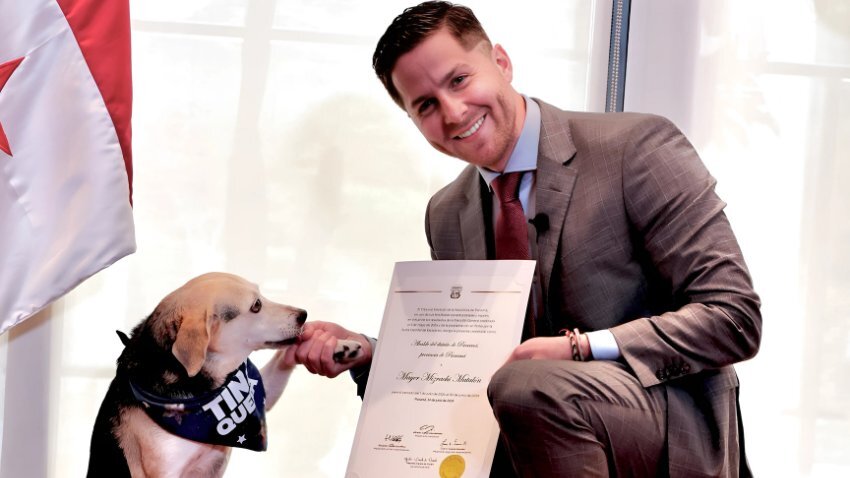
Let’s face it: people are waking up. They’re fed up with the same recycled political nonsense from career bureaucrats who promise the world and...
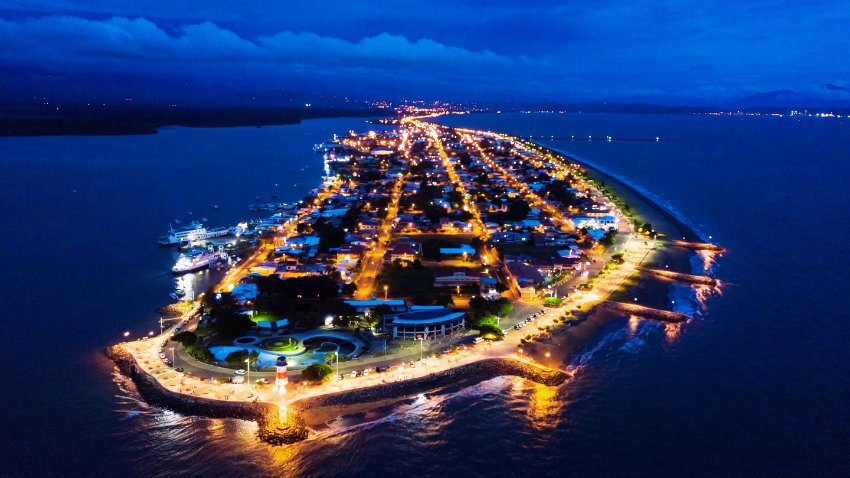
What comes to mind when you dream of living in Costa Rica? Maybe it’s gorgeous Pacific beaches, year-round warm weather, and world-renowned...

Which of these do you fear more: death or running out of money? This question might be a bit extreme, but did you know that 63% of Americans fear...